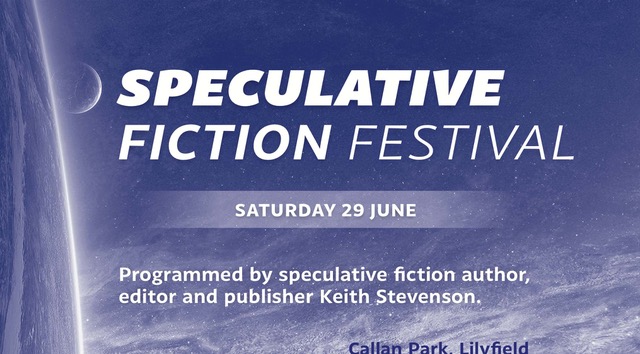
Check today’s date – because ten years from now life as we know it will no longer exist. A simple diagnosis from your doctor will involve consulting your genome sequence. Climate change will have altered every landscape. Virtual reality will be fully integrated into our everyday routines. We may not even need our human ‘meat sacks’ to exist and might have uploaded our conscious minds to The Cloud.
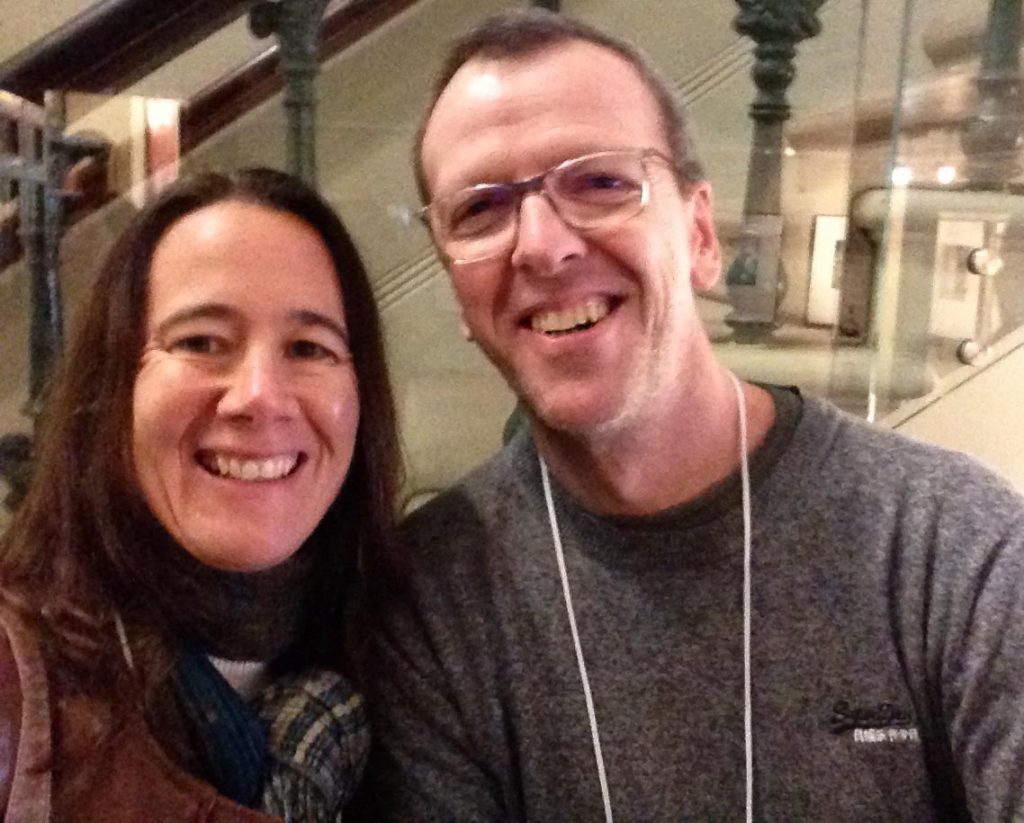
Only last week, I wrote an article for a parenting magazine about how vital creativity will be for the future of our children, given the speed of technological progress. What I discovered at the 2019 Speculative Fiction Festival last weekend only affirmed that view.
Change today is rapid, and speeding up, and affecting all areas of life – including speculative fiction.
That Was Then, This Is Now
The festival opened with a modern-day examination of various gateway novels, books that got panelists hooked on the genre. Popular favourites such as Mary Shelley’s Frankenstein (1818), Bram Stoker’s Dracula (1897) and HG Wells’ War of the Worlds (1898) were each so old they could be forgiven by panelist Rob Hood for their outdated literary style and lack of female characters.
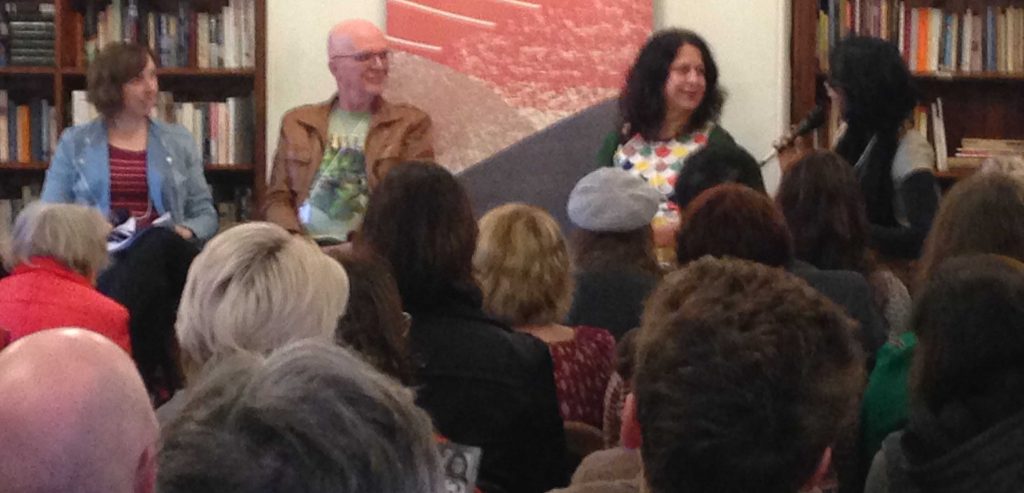
Stephen King’s The Shining (1977) gave panelist Kaaron Warren permission to be scared and got her writing horror, but also taught her errors not to make again. Hindu mythology and David Eddings’ Pawn of Prophecy (1982) opened up worlds for panelist Shankari Chandran, the latter also being her literary equivalent of ‘cheese on toast’; though were also full of bigotry, racism and sexism, with simple characters and stereotypical tropes. As I often tell my creative writing students and editing clients, the way authors write today is very different from how we wrote even twenty years ago, and for good reason – the literary landscape has changed. The rise in visual entertainment such as television and film means readers love being able to see ‘a movie in their head’ as they read, an affect seriously compromised by afflictions of ‘Over Blight’ or ‘Filter Words’ (click for free editing tips on both!). Our changing social and moral code also mean character viewpoints, arcs and descriptions only a decade-old now read as outdated.
Worldbuilding 101
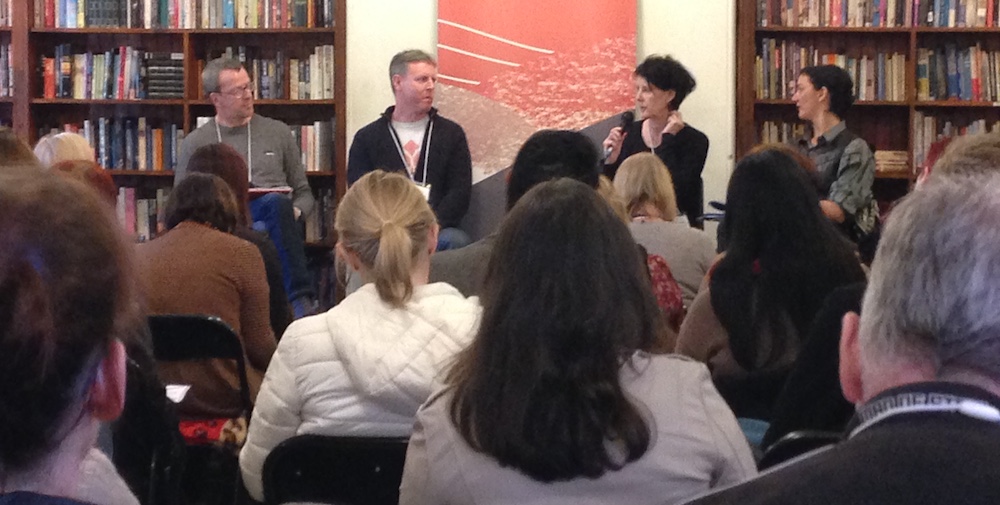
Indeed successful novelists today need to build immersive worlds that will fully engage readers without offending them. Epic fantasy panelist Mitchell Hogan usually starts his worldbuilding by defining the exact rules of a magic system, though shies away from religion to avoid offending readers, a safer bet being ‘ancestor worship’. Both panelist Catherine McKinnon and science fiction chair Keith Stevenson prefer to start by worldbuilding a place or planet, then asking questions of that place until they’ve created an appropriate social and political system, within which certain characters can then experience misconceptions and change; whereas fellow panelist Mykaela Saunders focuses on the concept of sovereignty in the future and climate change, thus exploring the present through the future.
The Art of the Deal
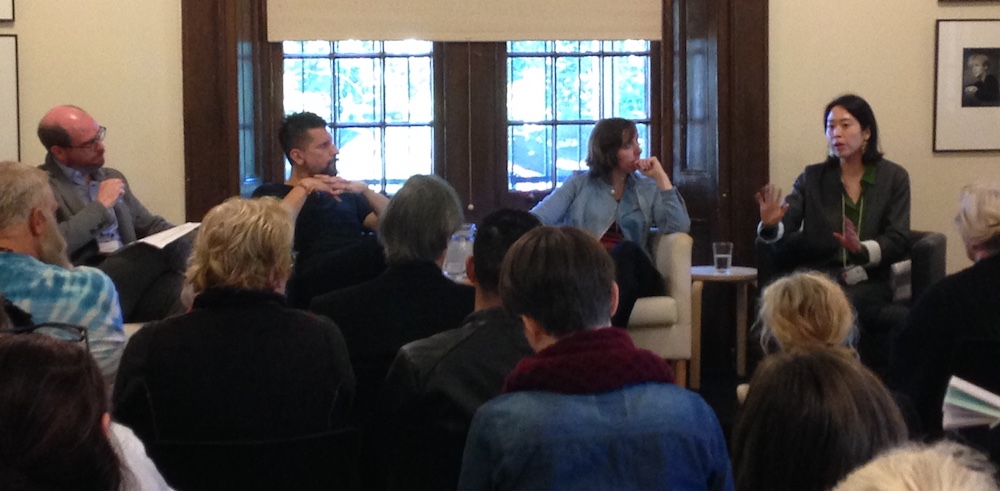
Even the way authors get their work to readers is changing, with book contracts addressing (though not necessarily making good use of) rights for different media, such as film rights, audio and translation. Chair David Henley urged authors to only retain film rights if they had good industry contacts, a view supported by publicist Brendan Fredericks who said, “ask yourself, what are you going to do with any rights you retain?” Fantasy panelist Tiffany Tsao kept her translation rights, for example, as she had industry translation contacts in Indonesia. Authors still generally have little influence over how their books are marketed to the reading public, though can now nominate dealbreakers such as the use of ethnic motifs and symbolism on a book cover. Epic fantasy author Sam Hawke was too overwhelmed by the joy of selling a book to a commercial publisher to have any dealbreakers.
Don’t Worry! Self-Publishing Doesn’t Mean ‘Do It Yourself’
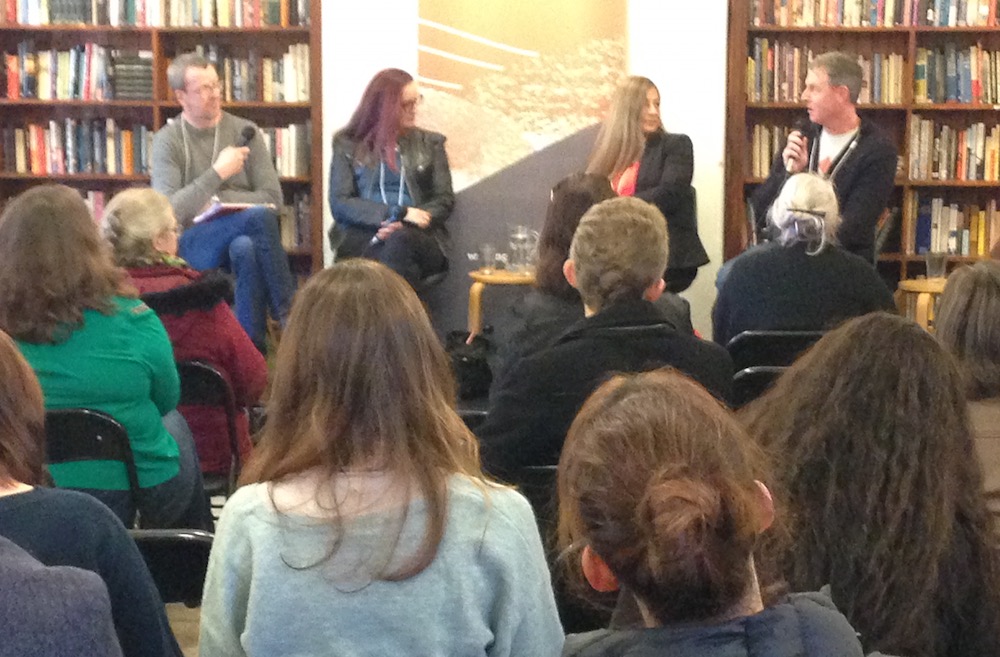
Independent ‘indie’ or ‘self’ publishing is still on the rise as an alternative to commercial publication, with panelists Mitchell Hogan, Dionne Lister and Abigail Nathan all agreeing the option involves authors learning to treat their writing like a business and their name like a brand. As you may know, I run a creative support business myself, helping writers turn their stories into books with editing and assessments, formatting, publishing and printing; but, once their words go ‘live’, an indie author really needs to separate their personal life from the business of selling their work. Abigail urged authors to ‘take the romance out of it’, Mitchell suggested authors concentrate on building an audience, and Dionne suggested meeting other indie authors online and learning from their knowledge. “Don’t give up,” she added, “just because of one bad review,” as there are plenty of other readers out there. She recommended reaching bookworms through Booktastik, a website set up only a few years ago to promote book deals, competitions and promotions directly to readers. The panelists also agreed editing prior to publication was vital to developing your brand, and to shop around for a good price. As a writer, Dionne said, it’s important to employ an editor because “you can’t see the kinks in your own writing as you’re too close to it.”
The Creeping Dread, The Frightful Scare
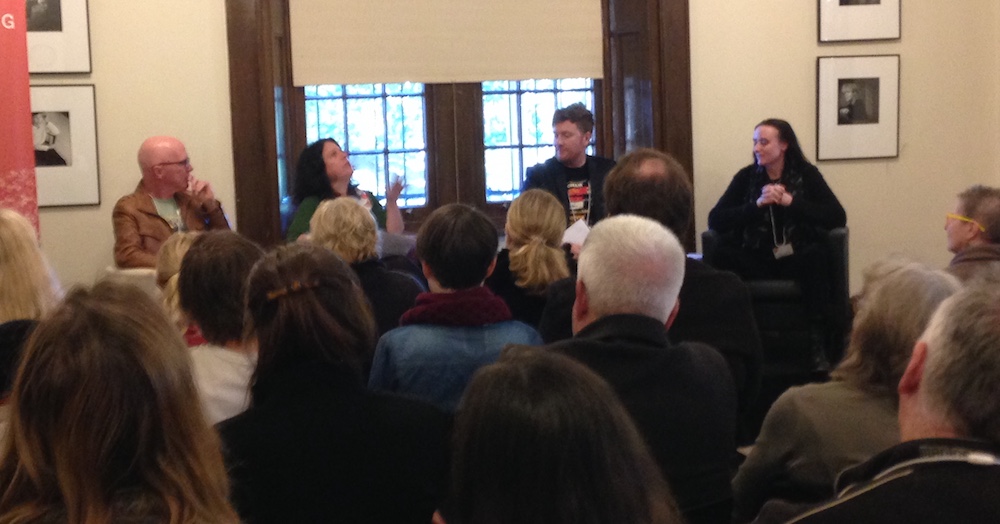
Readers are still reluctant to get close to horror writing, however, reported Kaaron Warren and Rob Hood on the horror panel, with one reader saying one of Kaaron’s books wasn’t horror. “She liked it,” Kaaron said, “so she didn’t want it to be horror.” Rob Hood agreed that horror “often gets dismissed as a genre”, whereas it actually offers hope – because as a reader you’ve survived the book. Panelist Kyla Ward said she likes to “get through the readers’ defences” as a writer and believes poetry can tell horrific stories “quite economically with great intensity.” Aaron Dries offered a definition of horror as extreme empathy, “something you feel in your guts,” and admitted he had a fundamental fear of losing his identity, such as through Alzheimer’s, mostly due to his day job working in trauma recovery.
The Real And The Not Real
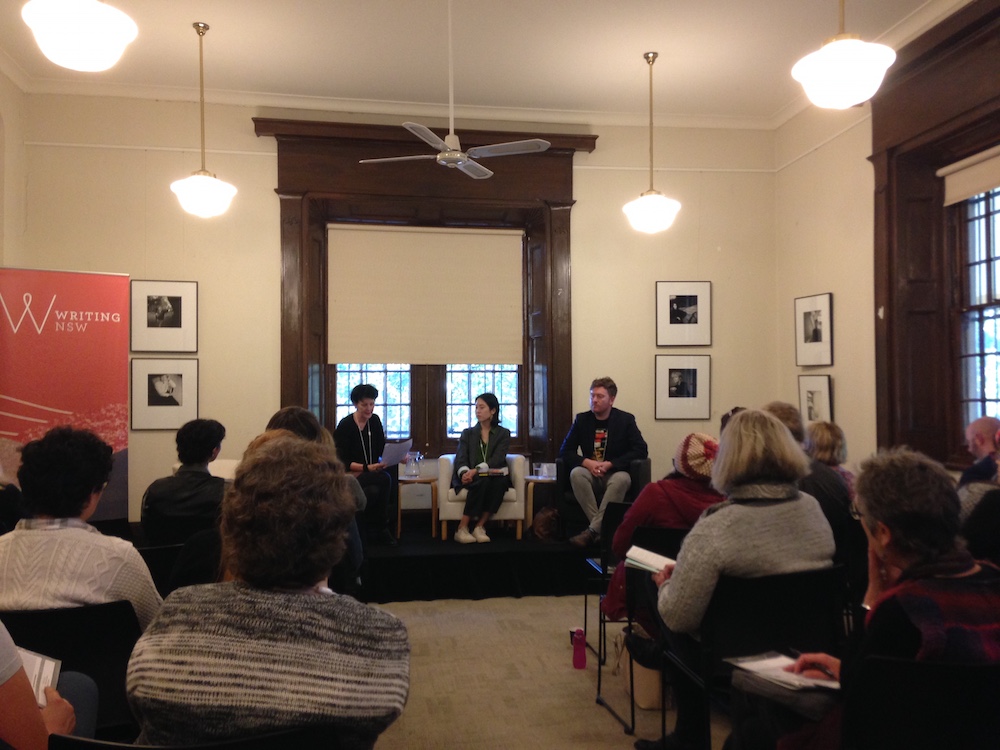
Aaron also explained that, for him, horror isn’t about “the monster in the cupboard”, it’s about the family who owns the cupboard, for which he also takes inspiration from his day job, particularly conversations he wished he’d had but which he hadn’t been awarded. Fantasy panelist Tiffany Tsao also took her influences from lived experiences, particularly of hoping she might fit in somewhere.
Science Fiction Now
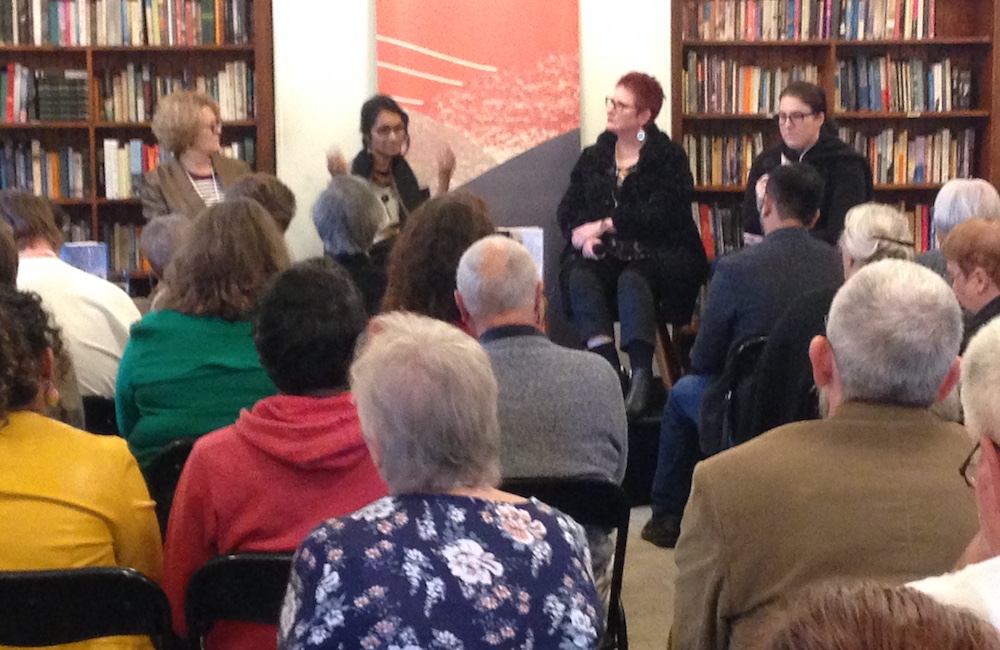
Panelist Shauna O’Meara urged authors to create worlds that normalized features we wished fitted more into our present, such as solar panels and electric cars, though also voiced the danger of speculative fiction becoming “awareness porn”. Chair Cat Sparks furthered this, fearing that “science fiction fails as a literature of purpose because it’s ghettoized as entertainment and not taken seriously. The label is damaging to the literature.” Whereas, she added, “we are the people who can see the future.” Panelist Shankari Chandran called science fiction a “Trojan horse for empathy” in that “it’s thrilling and entertaining but, without knowing it, you’re being schooled and challenged to wonder why the present day order exists? You don’t know that’s happened until it’s happened.” Fellow panelist Margaret Morgan agreed that science fiction authors can “marshal creativity for political causes”, though it’s also not needed as authors have no responsibility as creators to instigate social change.
Ideas Generator
Panelist James Bradley agreed that science fiction is limited in its ability to change the world, yet posited that it can influence it, since the purpose of fiction is empathy. Scientist Michael Gillings pointed out that public opinion can flip in a decade due to egalitarian ideology, as it did with such social changes as slavery, votes for women and same-sex marriage. “Science fiction,” he said, “offers the potential for collective learning about ethics, morality, philosophy.”
The festival then closed with thoughts to the future, such as genome sequencing and virtual reality. “Everything,” said panelist Elise Bohan, “has evolutionary underpinnings. The biggest threat to life is not AI (artificial intelligence) but humans. We have not evolved enough to cope with the technology we have. We are wired to think tribally and short-term.” Michael Gillings joked that, “a good plague would solve everything,” though also spoke about dysbiosis and in particular a reduction in our microbial flora relatable to a rise in anxiety and depression and a susceptibility to disease. Given the amount of bacteria living in symbiosis within our bodies, he also offered the terrifying idea that “maybe we’re not really the ones driving the bus!” It might sound like a horror novel, but writers often use theories and ideas at the cutting edge of scientific study and technology to inform their stories, and so I left the festival incredibly inspired, my creative imaginings fired about what the future might be like.
What About You?
Whether you were at the festival, or only reading about it through my blog, what do you think the future holds?
- Do authors have a responsibility to instigate social change?
- As a reader, do you like to learn something about our world, humanity and/or its relationship with technology, as well as be entertained (or scared!)?
- Perhaps your only fear is of the regulation that will inevitably accompany progress in the knowledge industry, and who will own the rights to information?
The only thing I know for sure, is that in sharing our thoughts and experiences we can plot our journey together.
On that note, here are just some of the many wonderful authors I got to hang out with at the festival:
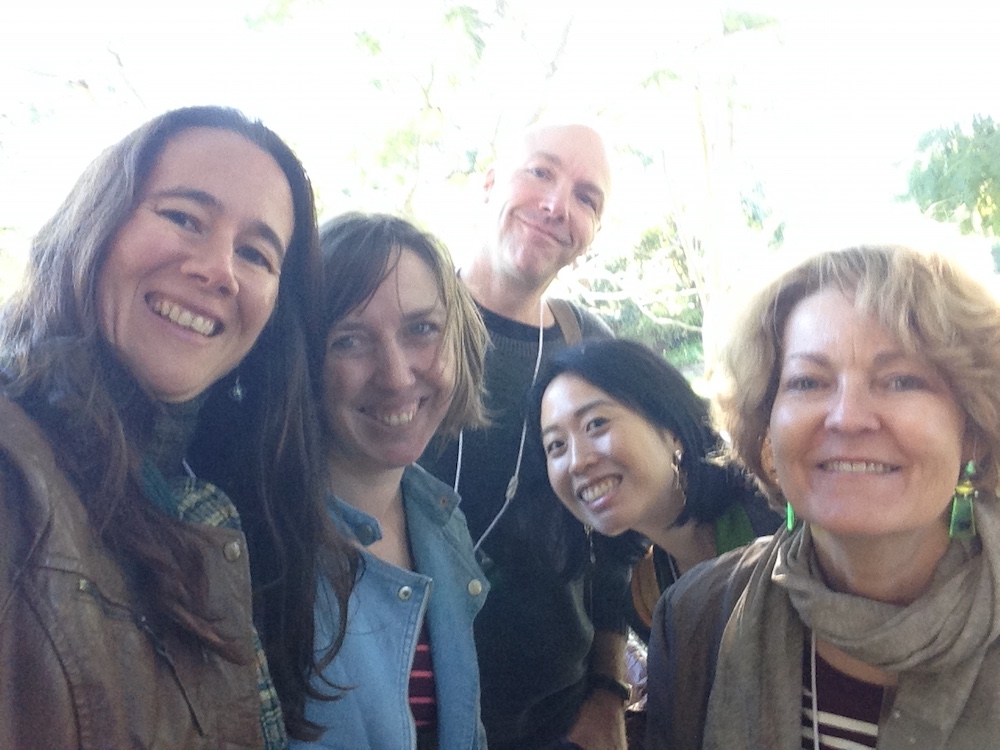
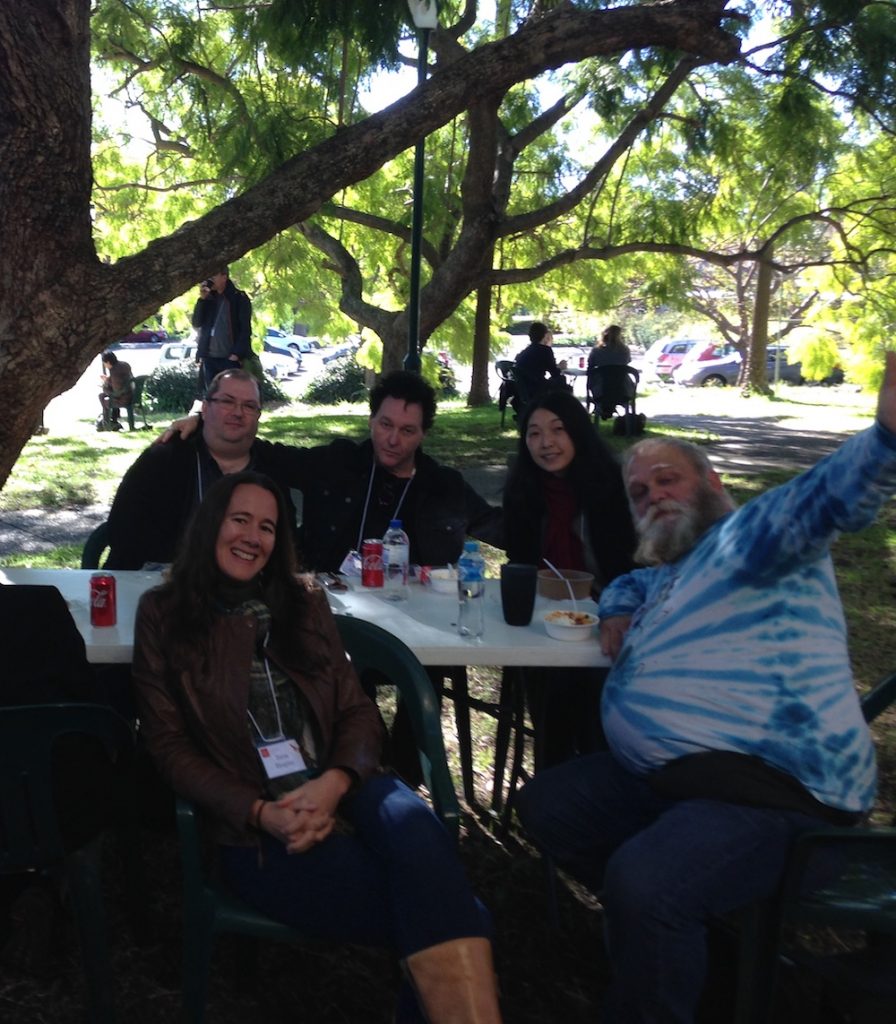
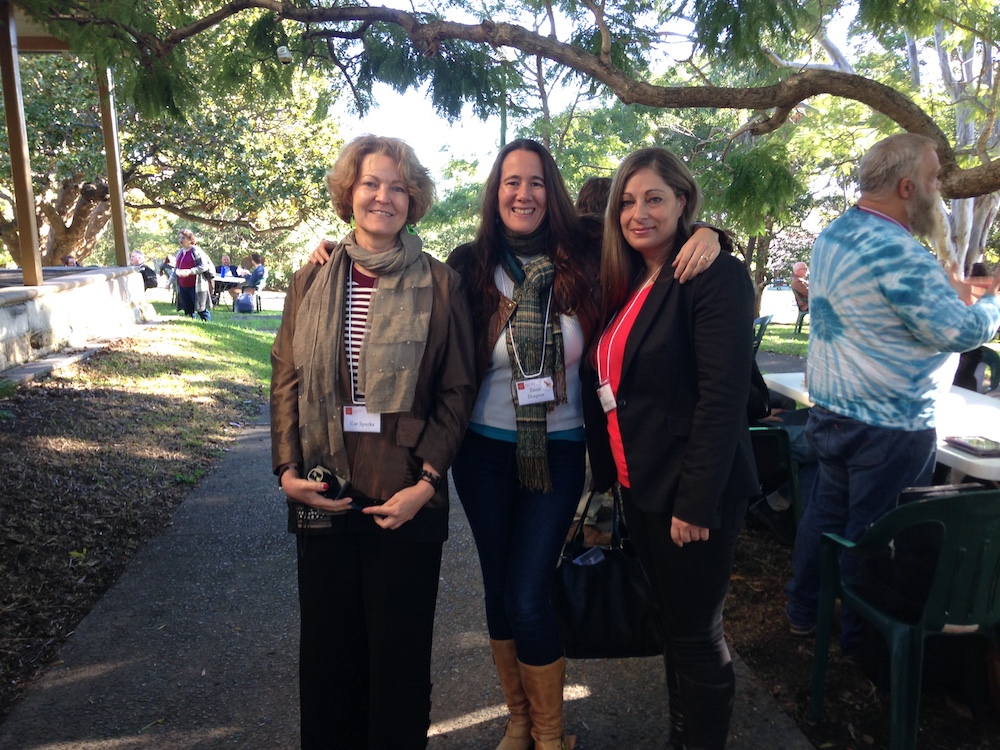
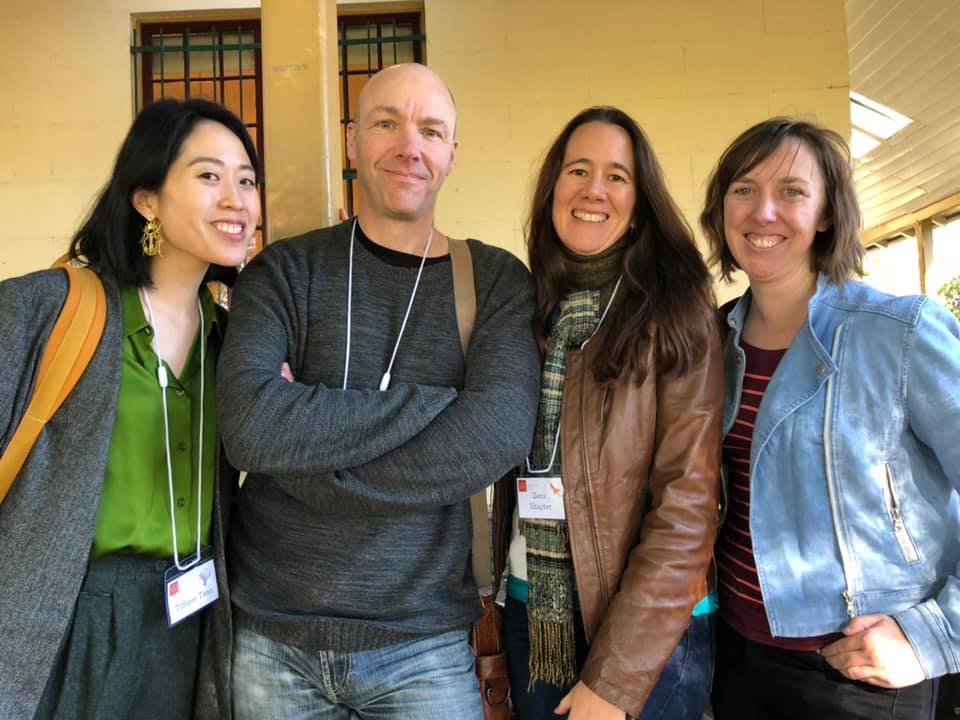
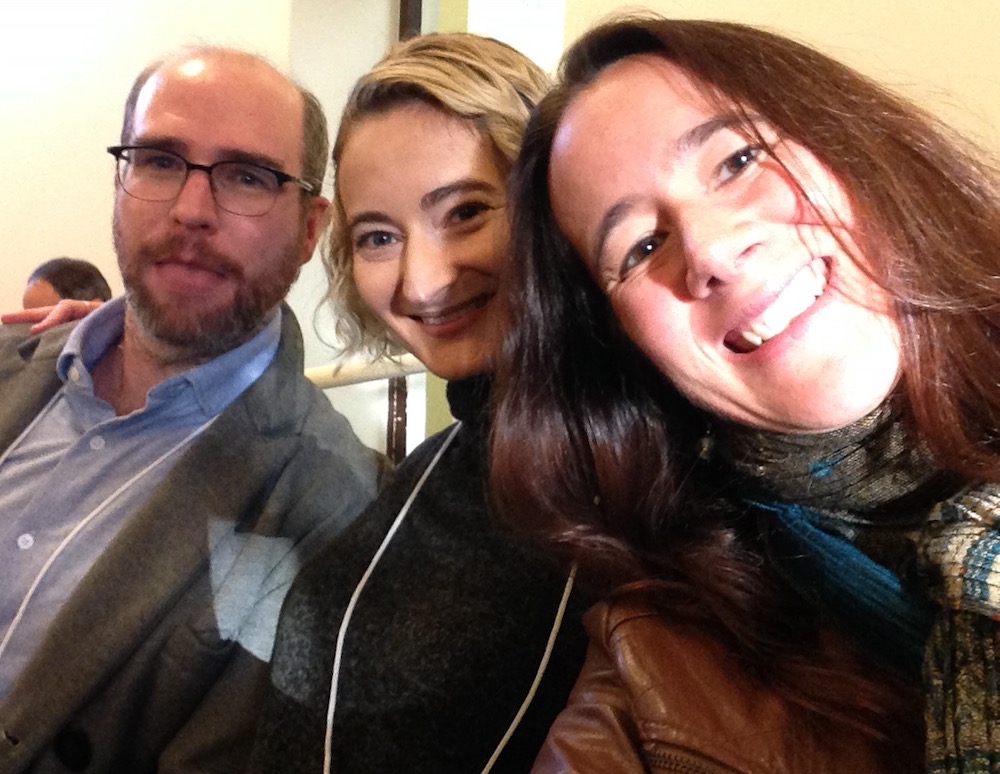
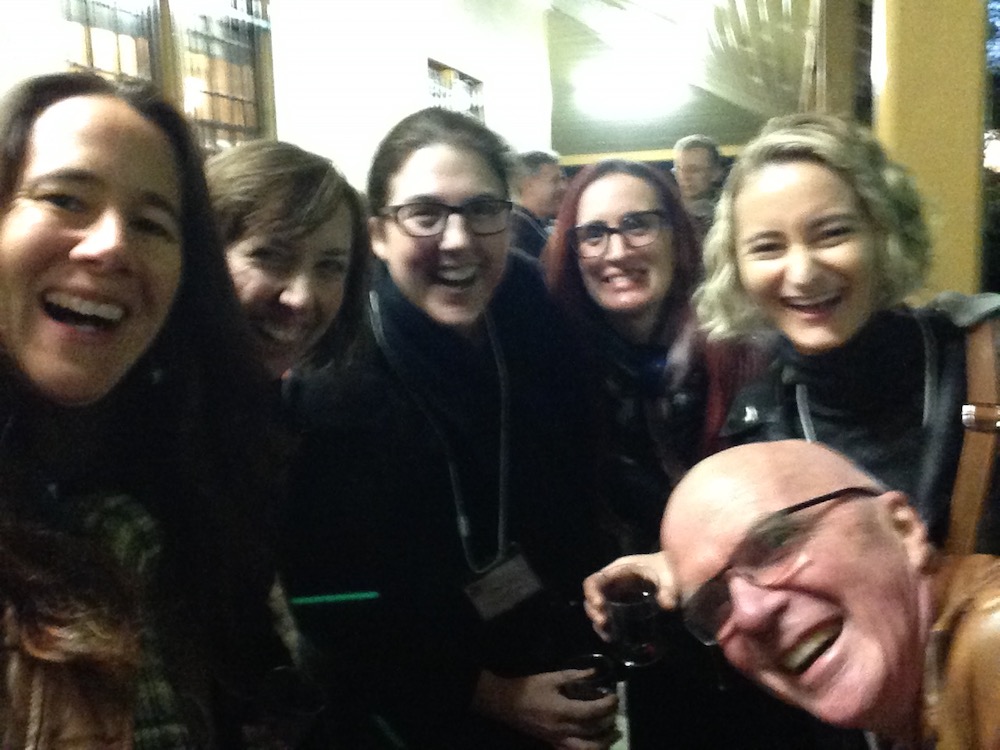






Great post. I did not know such a festival exists.
Hi Howard,
Thanks for reading! I’m so glad I’ve been able to share this with you because, yes, such festivals exist!
:0)